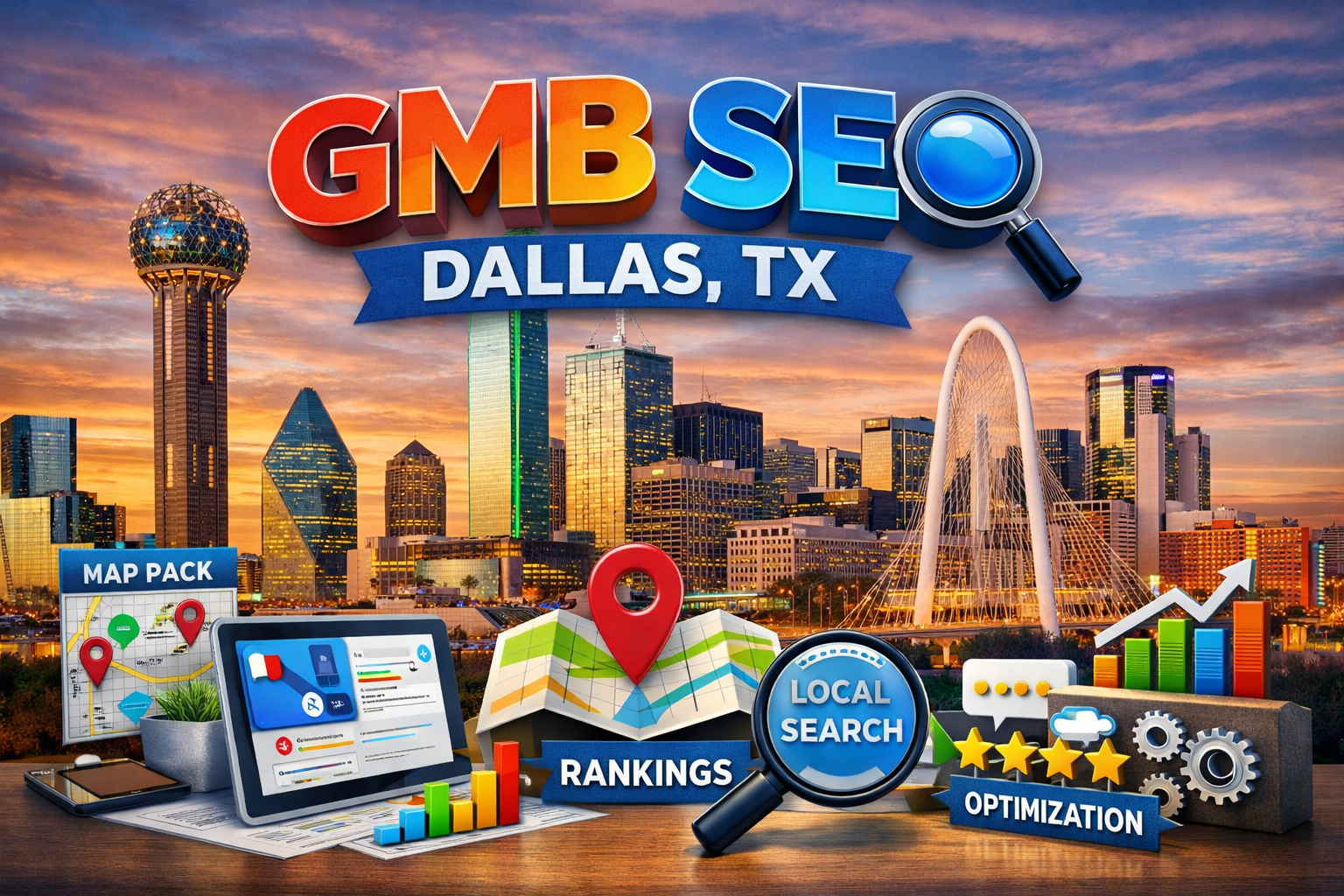As digital landscapes evolve, businesses in Dallas and beyond are rethinking their approach to search engine optimization (SEO). For years, SEO has been all about keywords – what people type into the search bar and how often those terms appear in website content. But today, search engines are getting smarter. They’re increasingly focused on understanding why users are searching for specific terms rather than just what they’re typing in. This shift toward intent-based search is changing the way SEO works and prompting the question: Will keyword-based search soon be a thing of the past?
Let’s explore what this means for businesses aiming to boost their search engine optimization in Dallas, and what adjustments may be needed to stay ahead.
Understanding Keyword-Based Search
Keyword-based search has been the bedrock of SEO strategies for years. The principle is simple: find keywords relevant to your business and audience, create content around those terms, and aim to rank high when users search for those keywords.
For example, if you run an SEO agency in Dallas, you’d likely target keywords like “search engine optimization Dallas” or “Dallas SEO agency.” The idea is that when someone types these terms into a search engine, your website ranks high on the results page, driving traffic to your business.
This strategy is effective because it helps businesses match specific search terms and attract people actively looking for relevant products, services, or information.
What Is Intent-Based Search?
Intent-based search, on the other hand, takes things a step further. Rather than focusing solely on keywords, intent-based search aims to understand the purpose behind a search. This might be a desire to learn something, compare products, find a local service, or make a purchase. In essence, intent-based search is about context – it’s less about exact phrases and more about understanding what the user really wants to achieve.
For instance, if someone searches “best SEO services in Dallas,” their intent may be to find recommendations, reviews, or comparisons for local SEO agencies. A search engine interpreting this as intent-based will prioritize content that helps the user make an informed decision rather than just returning a list of Dallas SEO companies.
Why Is Intent-Based Search Important?
Intent-based search has emerged as a powerful trend in SEO, largely driven by advances in artificial intelligence (AI) and and interpret what users truly want.
For businesses in Dallas focused on SEO, understanding user intent can be a game-changer. Imagine a user types “how to improve local business visibility in Dallas” – this search is a clear indication they want guidance or strategies. If you have content like “Top SEO Tips for Local Dallas Businesses,” you’re more likely to meet that user’s intent, even if they didn’t type your exact target keyword.
Key Differences Between Keyword-Based and Intent-Based Search
Here’s how keyword-based and intent-based searches compare:
- Precision vs. Purpose:
- Keyword-Based: Focuses on exact matches, placing importance on keywords and phrases used.
- Intent-Based: Looks beyond the literal meaning to understand the underlying purpose.
- Content Strategy:
- Keyword-Based: Structured around specific phrases like “SEO Dallas” or “SEO agency near me.”
- Intent-Based: Encourages creating helpful content that addresses broader questions or problems.
- User Experience:
- Keyword-Based: Can sometimes lead to clickbait, where content is keyword-rich but not valuable.
- Intent-Based: Prioritizes high-quality, relevant information, leading to a better user experience.
- Search Result Relevance:
- Keyword-Based: Often prioritizes exact matches.
- Intent-Based: Matches pages that best address the user’s intent, even if exact keywords aren’t present.
How Intent-Based Search Impacts SEO for Dallas Businesses
The shift toward intent-based search brings opportunities for businesses focusing on search engine optimization in Dallas:
- Improved Local Reach:
- Local searches, like “where can I find SEO services near me,” reveal clear intent. Optimizing for these types of questions can help Dallas SEO companies attract more qualified leads.
- Enhanced Content Quality:
- With intent-based search, Google prioritizes websites that genuinely answer user questions. This is great news for businesses willing to create in-depth guides, FAQs, and resourceful blog posts tailored to what users are really asking.
- Better Engagement and Conversion:
- Users are more likely to engage with and convert on content that matches their search intent. For instance, if someone searches “affordable SEO Dallas,” they’re likely looking for a balance of quality and price. If you highlight your pricing plans or value-added services, they’re more likely to reach out.
Optimizing for Intent-Based Search engine optimization in Your Dallas Strategy
To adapt to intent-based search, here are some strategies Dallas businesses can implement:
1. Analyze User Intent in Keyword Research
Traditional keyword research often focuses on search volume and competition. But to harness intent-based search, it’s essential to understand why users are searching for specific terms. Tools like Google’s Keyword Planner or Answer the Public can help identify common questions and concerns related to your services.
For example, rather than focusing solely on “search engine optimization Dallas,” consider adding content that targets queries like “how to choose an SEO agency in Dallas” or “benefits of SEO for small businesses in Dallas.”
2. Create Content for Different Intent Types
User intent generally falls into four categories:
- Informational: The user wants to learn about something (e.g., “how SEO works for local businesses”).
- Navigational: The user is looking for a specific website (e.g., “best SEO agency in Dallas”).
- Transactional: The user wants to make a purchase or hire a service (e.g., “affordable SEO services Dallas”).
- Commercial Investigation: The user is comparing options (e.g., “SEO vs. PPC for Dallas businesses”).
If you’re an SEO provider in Dallas, aim to create content that fits each of these intents. For example, an informational blog post might discuss “how SEO can improve website visibility,” while a transactional page could outline your service packages.
3. Use Long-Tail Keywords That Reflect User Intent
Long-tail keywords are often more specific and reveal clearer intent. For instance, instead of just “SEO Dallas,” you might focus on phrases like “SEO strategies for small businesses in Dallas” or “Dallas SEO for local business growth.” Long-tail keywords are less competitive, and by targeting them, you’re aligning closely with intent-based searches.
4. Make Content More Conversational and Helpful
With intent-based search, there’s a shift towards conversational, question-based content that reads naturally. Think about the actual questions people might ask, and structure your content to answer them directly. For example, a Dallas SEO blog might include sections like “What are the benefits of SEO for Dallas businesses?” or “How to find the right SEO agency in Dallas?”
5. Prioritize Quality Over Quantity
As search engines become better at understanding intent, high-quality, user-focused content will perform better than pages stuffed with keywords. Invest time in creating valuable resources that help your audience make informed decisions, rather than trying to cover every keyword.
What’s Next? The Future of Intent-Based Search engine optimization
As intent-based search evolves, SEO will likely become less about short keywords and more about engaging users by directly answering their questions. But this doesn’t mean that keyword-based search will disappear entirely. Rather, SEO strategies may blend keyword targeting with user intent, using keywords to signal relevance while creating content that satisfies the real reason behind a search.
For Dallas businesses, this means focusing on a holistic approach to SEO that prioritizes user experience. By understanding what your audience wants and creating content that meets those needs, you can stay relevant in this changing SEO landscape.
Conclusion: Adapting to Intent-Based Search for SEO Success in Dallas
The shift from keyword-based to intent-based search is a big one, but it brings exciting opportunities for businesses aiming to improve search engine optimization in Dallas. By embracing intent-based SEO, you’re not just optimizing for search engines—you’re enhancing the user experience and building trust with potential customers.
To stay competitive, go beyond just keywords. Focus on understanding what your Dallas customers are genuinely searching for and shape your SEO strategy to meet their needs. If you need expert assistance, contact Local SEO GMB Marketing in and around Dallas. We’re here to ensure your online success by connecting with your audience on a deeper level, making your content the answer to their questions, and ultimately driving your business growth.








